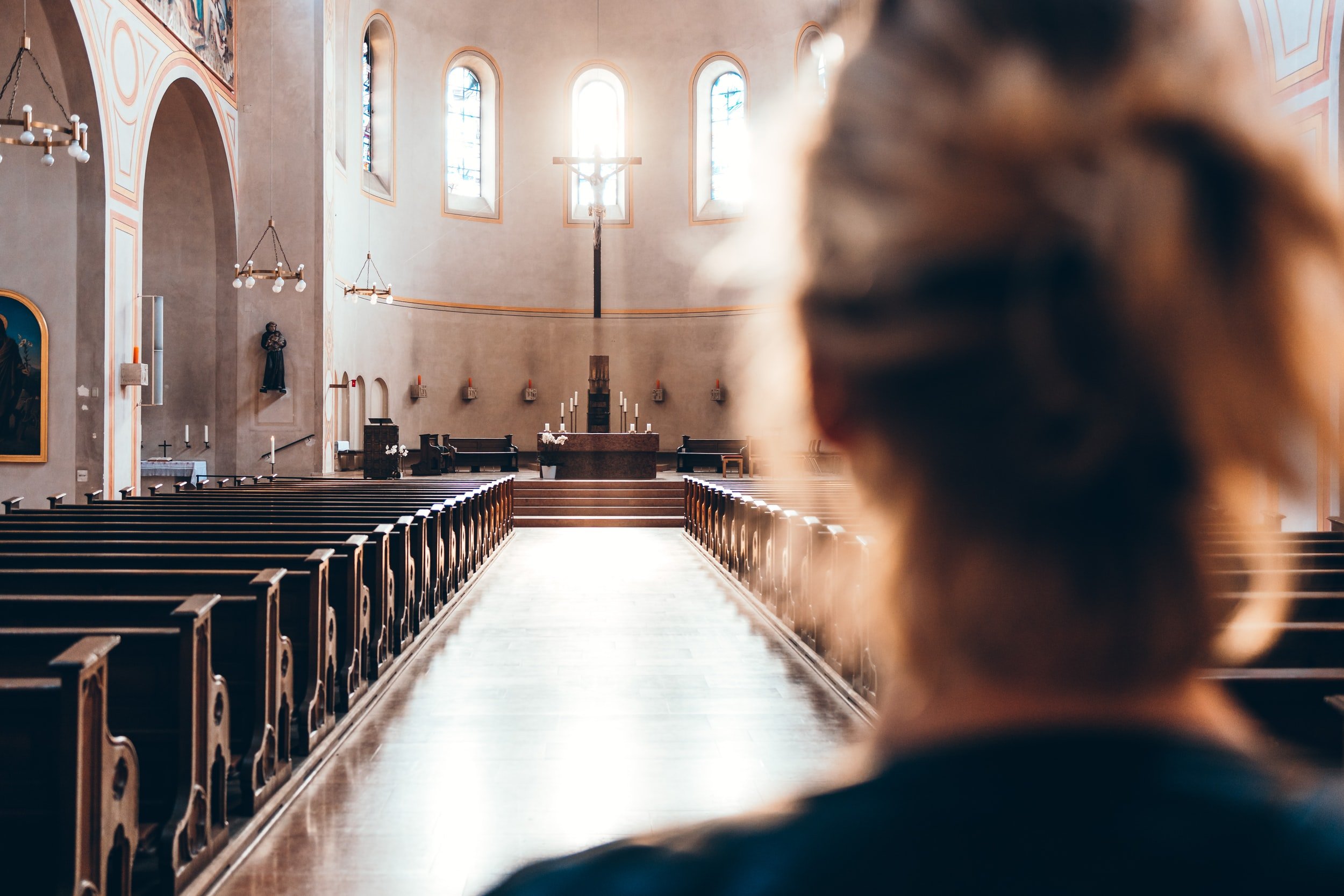How to Deconstruct Your Faith Like the Mystics
Faith deconstruction is nothing more and nothing less than finding out for yourself what is true. At some point you’ve come to understand that hand-me-down religion just won’t do anymore. You cannot continue relying on external authority figures like parents and pastors or external sources like a sacred text to tell you what is true and how to live. You must “go inside and know for yourself,” encourages modern mystic Thomas Keating. The deep, inner wisdom you seek will only be revealed through your own lived experience. “It’s been said that studying ourselves provides all the books we need,” writes spiritual director Pema Chodron, and I think she’s right.
This is the beginning of mystical deconstruction. It is finally having the courage to listen to that still, small voice inside your heart that has been telling you for years that authoritative evangelical Christianity is killing you, and the only faithful way forward is to get out. It demands that we finally admit what evangelicalism has become: an authoritative, spiritually colonizing, textually obsessed, politically motivated, patriarchal, power-hungry, domineering movement designed to enforce conformity at all costs.
To deconstruct is to be continually thrown out of the spiritual nest. It’s to live in a kind of exile, a deserted no man’s land with nothing but your own lived experience as your guide. But, wow, is it freeing. Instead of clinging to certainty, this new space beckons you on toward mystery and ambiguity. In fact, those of us in the deconstruction community are perennial doubters, a trait we inherited from our spiritual ancestors. Like us, these ancient misfits found themselves on the outside of faith looking in. So contrary to what The Gospel Coalition might tell you, deconstruction isn’t a modern, progressive fad, it’s an ancient tradition created by individuals who refused to be colonized by dominator religion, by those who knew the difference between a religion seeking imposed conformity and a free faith that allowed everyone to find and experience God in their way, on their terms.
In the fourth century, when the Roman emperor Constantine converted, Christianity became the official religion of the empire, changing the Jesus movement almost overnight. Once a subversive movement of social and political radicals, Christianity became the religion of the rich, the powerful, and the politically motivated. Followers of Jesus, who lived peaceful and nonaggressive lives on the margins of society for over 300 years, suddenly found themselves bearing arms for the Lord, storming the seats of power as they moved up from the catacombs to the Senate floor. The persecuted became the persecutors. The cross, once a symbol of torture and shame, became the imperial icon of conquest. Following the way of Jesus was reduced to an innocuous “believing” in Jesus. And the people once known for defending the rights of women, socialistic economic practices, pacifism, and justice were converted to imperial Christianity. Sound familiar?
As a result, the original deconstructionists fled this corrupted faith for the deserts of Palestine, Syria, Egypt, and Arabia. The Desert Fathers and Mothers, as they came to be known, rejected authoritative Christianity for a more free faith, one rooted in personal experience, meditation, inclusive community, and mysticism. As Thomas Merton tells us, “They sought a way to God that was uncharted and freely chosen, not inherited from others who had mapped it out beforehand.” In so doing, they carved out the first path of Christian deconstruction.
If, like the Desert Mothers and Fathers, you wish to embark on your own journey of deconstruction, there’s no better place to start than at its mythic source, the desert. And whether you’ve chosen to enter the desert of deconstruction on your own accord or if you were driven there by a compromised Church, I promise you this season in the spiritual wilds will change you. “Metaphorically, the desert is a place of testing and transformation, of being divested of empire and ego...The desert symbolizes the terrain in which we unlearn empire spirituality. It is a space for confronting the empire’s gods. Desert spirituality’s great power is the undoing of empire spirituality and its temptation to live according to force, power, and control,” writes Ryan Kuja.
The desert of deconstruction is the sight of flight and separation from religion as usual. Embarking on the path of deconstruction is a journey from the known to unknown, from order to disorder, control to chaos. It can be disorienting, but it might be the one thing required of you if you are to finally shed the controlling, colonizing forces of evangelicalism. And once you finally venture out into the unknown, you’ll find that, miraculously, others are already there, creating a safe, sacred oasis of spiritual transformation. You’ll find you aren’t alone after all.
But let’s not fool ourselves: This isn’t easy. Deconstruction leads to the periphery of faith, to the outlandish margins of spirituality where only the bravest dare journey. You might even be tempted to return to the security evangelicalism promises. But that false security will only lead to stagnation and death. So take heart! Our spiritual ancestors have gone before us, and others are already out there awaiting your arrival. Stride deeper and deeper into the spiritual unknown with the understanding that, as Barbara Brown Taylor tells us, “Others before you have found a way in the wilderness, where there are as many angels as there are wild beasts, and plenty of other lost people too. All it takes is one of them to find you. All it takes is you to find one of them.”
A Reflection for Your Journey
Now is the time to hold faithful
To your dream, to understand
That this is an interim time
Full of awkward disconnection.
Gradually you will come to find
Your way to friends who will open
Doors into a new belonging.
Your heart will brighten
With new discovery,
Your presence will unclench
And find ease,
Letting your substance
And promise be seen.
Slowly, a new world will open for you.
The eyes of your heart, refined
By this desert time, will be free
To see and celebrate the new life
For which you sacrificed everything.
—Excerpted from John O’Donohue’s poem, “For An Exile”










If there was a poet laureate of the deconstruction community, it would be Mary Oliver.